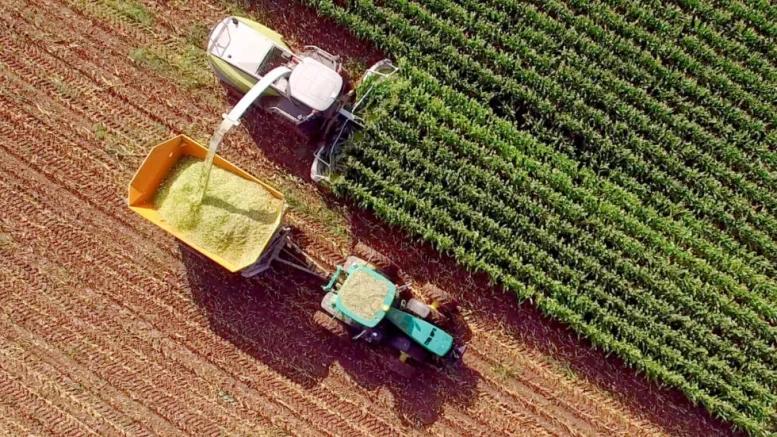“Among the main agricultural products exported to the US are coffee, beef, and orange juice…”
Fabio Solferini is the CEO of StoneX Brasil, graduated in administration from the University of São Paulo, with an MBA from INDEAD.
Solferini was appointed CEO of StoneX Brasil in August 2010 and elected Chairman of the Board of Directors of StoneX CDI in November 2022, following the acquisition of CDI-Société Cotonnière de Distribution S.A.

Fabio Solferini, CEO of StoneX Brazil
AgriBrasilis – What are the possible scenarios for Brazilian agriculture in relation to the US “tariff hike”?
Fabio Solferini – The US is an important destination for Brazilian agribusiness exports. Therefore, a reduction in trade with the US could have significant impacts on certain sectors of the national economy.
Among the main agricultural products exported to the US are coffee, beef, and orange juice. These segments could be severely affected by declines in shipment volumes and reduced export revenues, which would have an impact on companies, workers, and investors directly or indirectly involved in these production chains. In addition, the US domestic market may face higher levels of inflation. It is worth noting that the US is the main destination for Brazilian coffee exports and that this market is currently experiencing very high prices.
AgriBrasilis – How do dependence on large buyers and price volatility impact the sector?
Fabio Solferini – The threat of tariffs on Brazilian exports could also cause volatility, making decision-making in the sector more difficult. Trade relations could be affected, investment decisions could be postponed, and price fluctuations could impact the dynamics between supply and demand, reducing the predictability of the national agricultural sector.
Considering that the US is a strategic trading partner for Brazil, a drastic reduction in exports, if not quickly offset by the opening of new markets or the redirection of trade flows, would be very bad news for Brazilian agriculture.
AgriBrasilis – What are the consequences of tensions in the Middle East for the nitrogen fertilizer market?
Fabio Solferini – The conflict in the Middle East has brought more uncertainty to a sector that was meanwhile showing signs of stability. When it comes to the nitrogen market, Brazil is highly dependent on imports. Therefore, a conflict such as the one between Israel and Iran rekindles doubts about the global fertilizer trade, causing concern among importers, especially Brazilian ones.
During the confrontation, Egypt and Iran halted nitrogen production. This led to a temporary tightening of the global supply of nitrogen, driving up urea prices in several countries. In addition, logistical risks resulted in higher costs for transporting fertilizers in the region.
Currently, the ceasefire agreement between Israel and Iran has calmed the market, and nitrogen production in Egypt and Iran has meanwhile been restored. The risks to the fertilizer market have fallen considerably since tensions in the Middle East eased. However, urea prices remain above pre-conflict levels, which is not good news for Brazilian buyers, especially those who need nitrogen fertilizers for the 2025/26 season.
“…Agricultural commodities sector in Brazil faces higher production costs…”
AgriBrasilis – How do you see the current agricultural landscape, with rising input costs and the Harvest Plan falling short of expectations?
Fabio Solferini – The 2025/2026 Harvest Plan (Brazilian Government agricultural financing plan) reflects the challenges of a scenario of government budget constraints and a significant increase in the basic interest rate (Selic). The increase in available resources failed to keep pace with inflation in relation to the 2024/2025 season, and most incentive interest rates rose by 1.5 or 2.0 percentage points.
Fluctuations in commodity prices, higher debt levels after recent investments, and more restrictive credit conditions pose challenges for the sector, but we still see expansion in the segment in the coming years, albeit at a more moderate pace.
AgriBrasilis – What are StoneX’s expectations for the commodities market?
Fabio Solferini – In general, the agricultural commodities sector in Brazil faces higher production costs, which has penalized segments with declining revenues, such as the grain and cotton complex.
More restrictive credit conditions, with higher interest rates, increase the challenges for farmers, which should result in slower growth in agricultural production, especially in crops with more pressured prices. On the other hand, some sectors have more favorable margins due to high prices in the global market, such as coffee and cocoa.
The approval of new guidelines for blending biodiesel and ethanol in fuels, which are expected to take effect in August, should expand domestic absorption of agricultural commodity production and contribute to a more favorable scenario for Brazilian farmers. This is particularly important at a time of uncertainty for the foreign market, with fears that the imposition of import tariffs by the US will reduce global economic growth and, consequently, also decrease demand for commodities. However, trade tensions themselves may result in more opportunities for Brazilian agribusiness, as other countries may want to reduce their dependence on American products, which would benefit sectors in which Brazil and the US compete globally, such as grains and cotton.
READ MORE:

